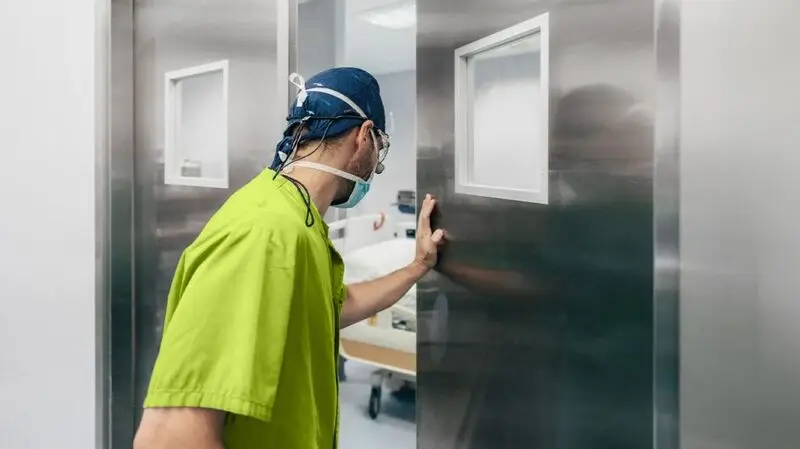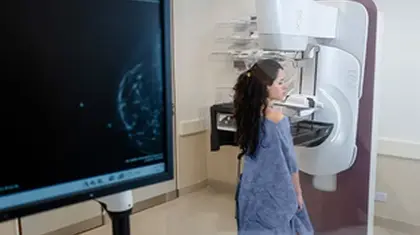
- Researchers say people who have gastric bypass surgery for weight loss are significantly less likely to have their type 2 diabetes return, even after gaining back weight.
- Insulin use, higher A1c, and a longer duration of type 2 diabetes before surgery were more closely associated with diabetes recurrence.
- Overall, 75% of people who had gastric bypass saw their diabetes stay in remission, compared with 34% of people in the sleeve gastrectomy group.
People with obesity and type 2 diabetes who have had gastric bypass surgery are more likely to experience remission for their diabetes, even if they regain weight, than those who received a gastric sleeve procedure.
That’s according to a new study published in the Journal of the American College of Surgeons.
Researchers from the Mayo Clinic in Minnesota examined the relationship between weight loss surgery and diabetes remission.
They reviewed the medical records of 224 participants who underwent a gastric bypass at the Mayo Clinic between 2008 and 2017. They also looked at the records of 46 people who received a gastric sleeve procedure.
All participants had been diagnosed with obesity and type 2 diabetes before their gastric surgery.
The scientists monitored the participants for at least five years following surgery to see if weight gain led to a recurrence of diabetes.
Some of the findings from the new study included:
- Gastric bypass surgery resulted in high rates of type 2 diabetes remission five years after the surgery, even for people who regained a significant amount of weight.
- Participants who received a gastric sleeve were 5.5 times more likely to have their diabetes return than those who received a gastric bypass.
- Among those who regained their weight after gastric bypass surgery, about 60% still maintained long-term diabetes remission, compared to no participants in the gastric sleeve group.
- Insulin use, higher A1C (before surgery), and longer preoperative duration of diabetes were more closely associated with diabetes recurrence than weight regain.
Gastric bypass surgery decreases the size of the stomach and reroutes the upper part of the small intestine – the duodenum. Gastric sleeve surgery reduces the size of the stomach by 80% but does not reroute the upper part of the small intestine like a gastric bypass does.
Although weight regain was not directly associated with type 2 diabetes remission, the researchers said it was an essential factor.
Because participants who regained their weight continued to experience remission of their diabetes, the authors believe this supports the idea that the small intestine plays a major role in managing diabetes.
“In patients who regained weight after bariatric surgery, 75 percent continued to be in diabetes remission if they had gastric bypass versus 34.8 percent if they had sleeve gastrectomy,” Dr. Omar Ghanem, a metabolic surgeon at the Mayo Clinic and a study author, told Medical News Today. “Even after taking patient and diabetes-related factors into account, the odds of diabetes coming back in case of weight recurrence was 5.5 higher if the patient had sleeve rather than bypass.”
“Sixty percent of patients who had gastric bypass and regained more than 100% of the weight they lost (meaning that their weight now is higher than their weight when they had surgery) continued to be in diabetes remission,” Ghanem noted.
“This suggests that bariatric surgeries that bypass the duodenum (like the bypass) have a powerful, weight loss independent effect on diabetes and metabolism,” he added. “These surgeries should still be considered the gold standard for type 2 diabetes therapy in patients with obesity.”
The researchers noted that the portion of the small intestine that is bypassed during a gastric bypass surgery is associated with the pancreas and aids digestion.
“The results are interesting but not surprising. The duodenum is associated with the pancreas and with a gastric bypass, the intestine is rerouted,” said Dr. Mir Ali, a bariatric surgeon and medical director of MemorialCare Surgical Weight Loss Center at Orange Coast Medical Center in California who was not involved in the study. “The exciting part is that diabetes remains in remission, even if the person regains the weight.”
“When I counsel my patients about weight loss surgery, I focus on the reason why the person wants the surgery,” Ali told Medical News Today. “For those concerned about better managing their diabetes, I suggest bypass surgery.”
“However, I remind them that weight loss surgery is a tool to help them develop new habits,” he added.
In a
In the study, the overall estimated increase in median life expectancy after surgery was about 6 years.
In the new study, researchers noted they were constrained by the data they were given due to the fact they relied on previous research.
They also lacked the ability to include information on lifestyle factors and other behaviors that can contribute to the severity of type 2 diabetes.
The authors noted that this is a retrospective, single-center study. Therefore, the results may not apply to other bariatric programs nationwide.
Despite the limitations, the scientists say their findings can be a vital cornerstone for future research into the recurrence of type 2 diabetes after bariatric surgery.





